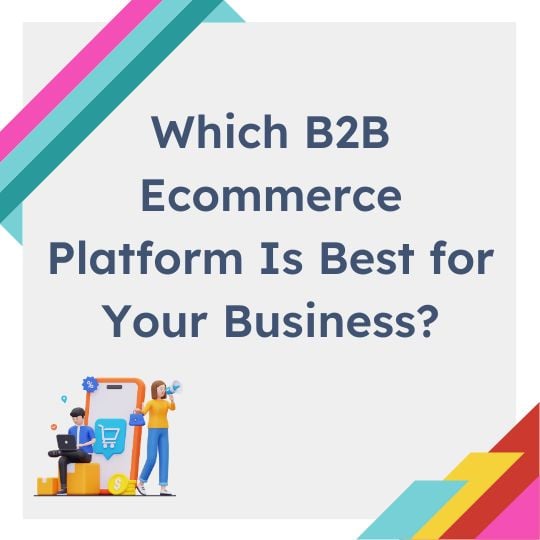Category: Best Practice Guides
-
Why Web Design Really Matters
A well-designed website is more than a digital brochure, it’s a strategic business asset. Your website is often your first impression, your digital storefront, and your most powerful sales tool. Web design isn’t about decoration. It’s about performance, perception, and the ability to engage users from the moment they land on the page.
Written by

-
The Power of Reviews: Building Trust and Boosting Sales Online
In digital commerce, one factor continues to hold disproportionate sway over consumer behaviour, the online review. Whether it’s a five-star rating on Google or a detailed testimonial on Trustpilot, customer feedback is no longer an outer aspect of business, it’s central to it.
Written by

-
Which B2B Ecommerce Platform Is Best for Your Business?
Choosing the right B2B ecommerce platform is a make-or-break decision. Whether you’re launching your first online wholesale catalogue or looking to upgrade your digital infrastructure, the platform you choose must support everything from flexible pricing to complex shipping rules and customer segmentation.
Written by

-
Crafting the Perfect Landing Page: Design Tips for Success
In the world of E-commerce and digital marketing, a landing page is your secret weapon for converting visitors into leads or customers. It is a web page specifically designed to encourage users to take a particular action, such as signing up for a newsletter, calling to enquire, or making a purchase. Unlike a typical website…
Written by

-
The Top 10 SEO Tips Our Specialists Swear By
Staying atop the SEO game is crucial for any business looking to make its mark online. As search engines evolve, so must our strategies to make certain our websites rank as highly as possible. Below, we unfold our top SEO tips, shared by our specialists at Studioworx, designed to refine your strategy and secure your…
Written by

-
Revolutionising E-Commerce: How Studioworx Transforms B2C to B2B
The transition from B2C to B2B platforms represents a significant shift in functionality and user experience. Here at Studioworx, we believe that we excel in this domain, seamlessly transforming B2C sites into robust B2B solutions.
Written by

-
Cutting Costs Effectively: Merging Your Retail & B2B E-Commerce Platforms
The significance of e-commerce in shaping business transactions is undeniable. Retail and B2B (business-to-business) e-commerce platforms have traditionally been distinct entities, each presenting unique challenges and incurring specific costs. However, in the pursuit of efficiency and cost-effectiveness, a growing trend is emerging: the integration of retail and B2B e-commerce platforms.
Written by

-
Enhancing B2B Engagement: Lessons from B2C Design Innovation
In today’s rapidly evolving digital world, the design of B2B and wholesale websites is more crucial than ever for attracting and retaining customers. Drawing inspiration from B2C websites, these platforms can transform their user experience and enhance performance.
Written by


